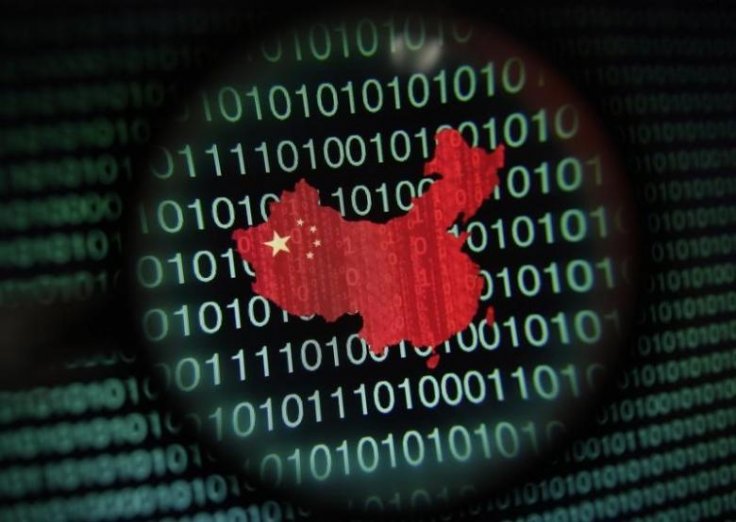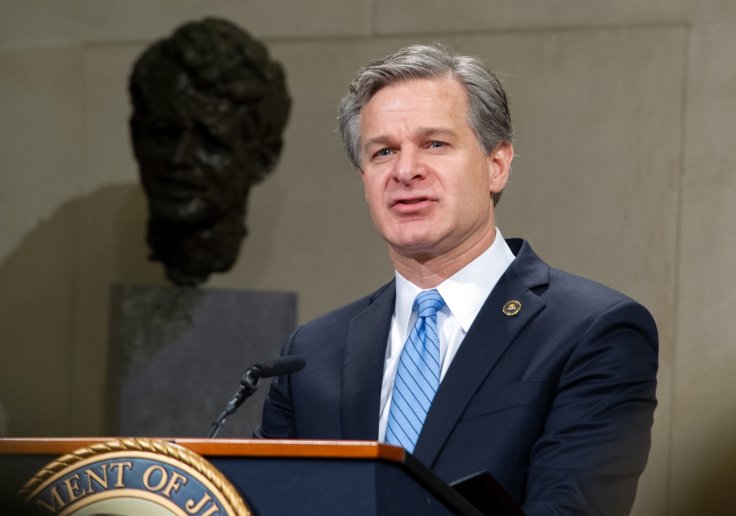FBI Director Christopher Wray warned over ongoing Chinese counterintelligence threats to the U.S. companies as well as health care groups, and slammed Beijing for its use of espionage and cyber-attacks, saying that such digital threats had increased by 1,300 percent over the past decade.
According to Wray, the espionage and cyber attacks against the U.S. have amounted to what he called "one of the largest transfers of wealth in human history." During an address at the Hudson Institute, he said, "The stakes could not be higher, and the potential economic harm to American businesses and the economy as a whole almost defies calculation."

In blistering remarks on Tuesday, July 7 he said that to surpass the U.S., the communist party ruled China has recognized that it should make leaps in cutting edge technology, but instead of engaging in the hard slog of innovation, Beijing often "steals American intellectual property" and then used it to compete against the U.S. companies it victimizes, "in effect, cheating twice." In Addition, Wray said the government of China targets "research on everything from military equipment to wind turbines."
While talking about the estimated financial damage the U.S. has to face due to the actions taken by China, he did not provide an exact ratio but said "every figure I've seen is breathtaking." He also explained that even though such threats from China are real, it doesn't mean that the U.S shouldn't do business with the Chinese, or host Chinese visitors, or welcome Chinese students. He said, "It does mean that when China violates our criminal laws and international norms, we are not going to tolerate, much less enable."
The Chinese Threat
In May, the FBI and Cybersecurity and Infrastructure Security Agency of the U.S. in a joint statement said the officers were investigating the targeting and compromise of U.S. organizations which are conducting Coronavirus-related research by China-affiliated cyber actors and non-traditional collectors.
It also added that the threat actors have been caught attempting to "identify and illicitly obtain valuable intellectual property" as well as public health data related to COVID-19 study. The statement claimed that the potential theft of such data jeopardizes the delivery of secure, effective, and efficient treatment options.
At the time when both the countries were already engaged in a disruptive trade war, the global health crisis caused by novel Coronavirus outbreak in China made the relations between Washington and Beijing more toxic. Meanwhile, the intellectual property theft accusation turned out to be another major sticking point between these two nations.
While the U.S. officials have long complained that Chinese intellectual property theft has cost its economy billions of dollars in revenue, along with thousands of jobs, posing a threat to the national security, China has maintained that it does not engage in intellectual property theft.

Wray said, "Of the nearly 5,000 active FBI counterintelligence cases currently underway across the country, about half are all related to China." He cited massive Chinese hacking activities in past few years including the Equifax data breach in 2017 which exposed the personal information of around 145 million U.S. people and the 2015 cybersecurity breach of health company Anthem that affected over 78 million people.
He noted that the U.S. Secretary of State Mike Pompeo and Attorney general William Barr will address these threats in the next few weeks due to the significance of the ongoing national security concerns.









